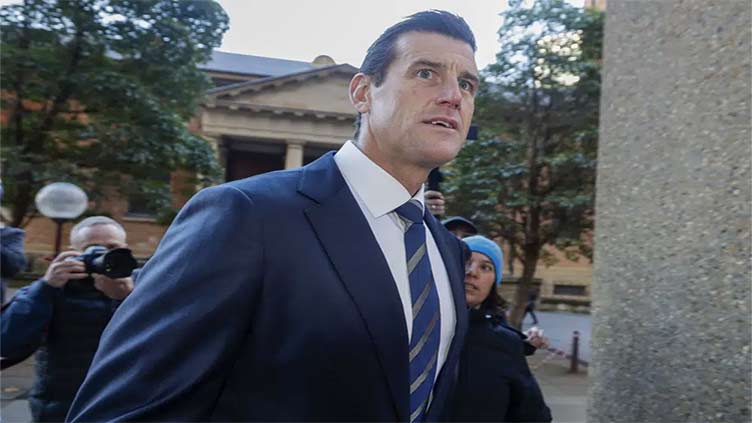Decorated Australian war veteran unlawfully killed prisoners in Afghanistan, judge says

World
The court ruled that the articles published in 2018 were substantially true about war crimes
SYDNEY (AP) — Australia’s most decorated living war veteran unlawfully killed prisoners and committed other war crimes in Afghanistan, a judge ruled on Thursday in dismissing the claims by Victoria Cross recipient Ben Roberts-Smith that he was defamed by media.
Federal Court judge Anthony Besanko ruled that the articles published in 2018 were substantially true about a number of war crimes committed by Roberts-Smith, a former Special Air Service Regiment corporal who now is a media company executive.
Besanko found Roberts-Smith, who was also awarded the Medal of Gallantry for his Afghan war service, “broke the moral and legal rules of military engagement” and disgraced Australia through his conduct.
Proven allegations included that Roberts-Smith, the son of a judge, killed a prisoner who had a prosthetic leg by firing a machine gun into the man’s back in 2009. He kept the man’s prosthetic as a novelty beer drinking vessel.
The accusations also included Roberts-Smith had kicked an unarmed, handcuffed farmer off a cliff into a riverbed where he directed a soldier under his command to shot the farmer dead in 2012.
On another occasion, Roberts-Smith pressured a “newly deployed and inexperienced” soldier to kill an elderly, unarmed Afghan to “blood the rookie,” the court found.
Accusations that Roberts-Smith, who stands 2.02 meters (6 feet, 7 inches) tall, bullied soldiers and assaulted Afghan civilians were also found to be true.
Two of six unlawful killings Roberts-Smith was accused of involvement in were not proven to the civil court standard of balance of probability, the judge found.
Reports of domestic violence allegedly committed by Roberts-Smith were also found to be unproven and defamatory. But the judge found the unproven allegations would not have further damaged the veteran’s reputation.
Had such war crime allegations been made in a criminal court, they would have had to be proven to a higher standard of beyond reasonable doubt.
Roberts-Smith, 44, had denied any wrongdoing. His lawyers had blamed “corrosive jealousy” by “bitter people” within the SAS who had run a “poisonous campaign against him.”
The civil case made claims of defamation against The Sydney Morning Herald, The Age and The Canberra Times over their articles.
Nick McKenzie, one of the reporters responsible for the contentious articles, praised the SAS veterans who had testified against the national hero.
“Today is a day of justice. It’s a day of justice for those brave men of the SAS who stood up and told the truth about who Ben Roberts-Smith is — a war criminal, a bully and a liar,” McKenzie told reporters outside court.
“Australia should be proud of those men in the SAS. They are the majority in the SAS and they stood up for what was right and they have been vindicated,” McKenzie added.
Roberts-Smith’s lawyer Arthur Moses asked for 42 days to consider lodging an appeal to the Full Bench of the Federal Court.
The case’s legal costs have been underwritten by billionaire Kerry Stokes, executive chairman of Seven West Media where Roberts-Smith is employed.
Roberts-Smith is one of several Australian military personnel under investigation from Australian Federal Police for alleged war crimes in Afghanistan.
The first criminal charge for an alleged illegal killing in Afghanistan was made in March. Former SAS trooper Oliver Schulz was charged with the war crime of murder in the death of an Afghan who was shot in 2012 in a wheat field in Uruzgan province.

